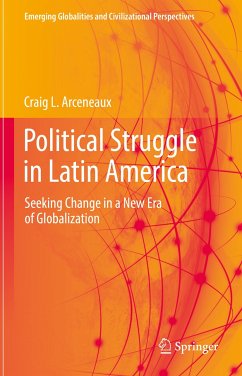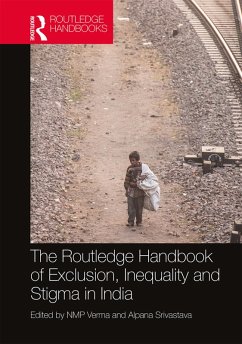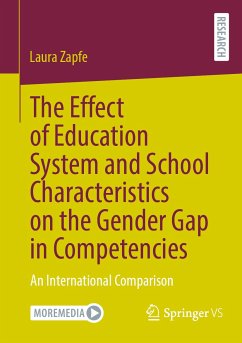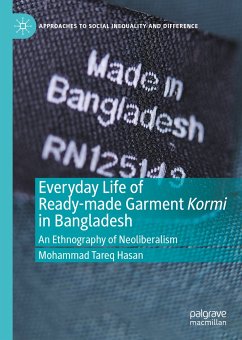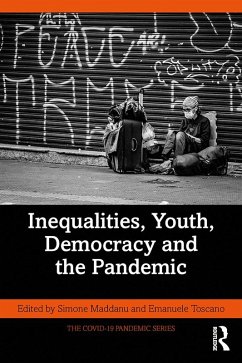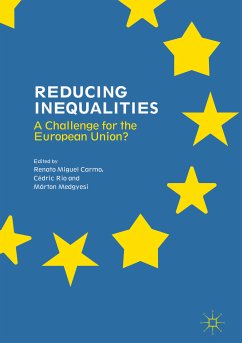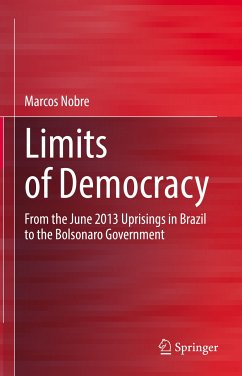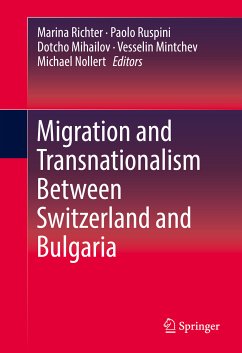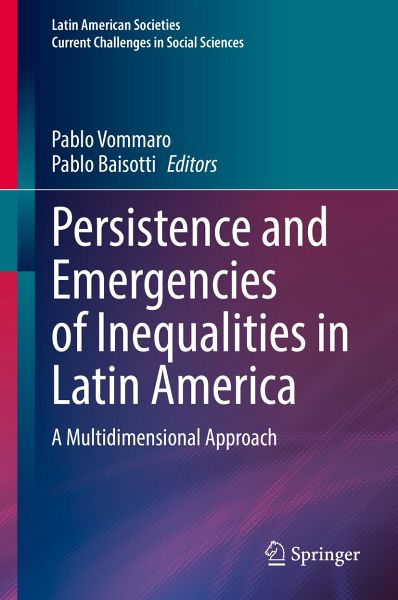
Persistence and Emergencies of Inequalities in Latin America (eBook, PDF)
A Multidimensional Approach
Redaktion: Vommaro, Pablo; Baisotti, Pablo
Versandkostenfrei!
Sofort per Download lieferbar
104,95 €
inkl. MwSt.
Weitere Ausgaben:

PAYBACK Punkte
52 °P sammeln!
This book adopts a multidimensional approach to analyze both the historical and emerging factors that contribute to make Latin America and the Caribbean the most unequal region in the world. Social inequality is a historical characteristic of the region, but at the beginning of the 21st century, a handful of progressive governments seemed to be adopting policies that could reduce this historical trend. Many of these efforts, however, were blocked or reversed by the COVID-19 pandemic, which both exposed the persistence of historical trends and contributed to the emergency of new forms of inequa...
This book adopts a multidimensional approach to analyze both the historical and emerging factors that contribute to make Latin America and the Caribbean the most unequal region in the world. Social inequality is a historical characteristic of the region, but at the beginning of the 21st century, a handful of progressive governments seemed to be adopting policies that could reduce this historical trend. Many of these efforts, however, were blocked or reversed by the COVID-19 pandemic, which both exposed the persistence of historical trends and contributed to the emergency of new forms of inequality in the region.
The different chapters in this contributed volume adopt a multidimensional, intersectional, perspective to analyze both the persistence and the emergency of social devices of production and reproduction of inequalities in the diverse Latin American and Caribbean temporal spatialities. The issues analyzed in the different chapters revolve around four main axes: a) persistence of generational and intergenerational inequalities; b) structural gender inequality; c) intertwined social inequalities: race, class and social structure and; c) historical and economic dimension of inequality.
Persistence and Emergencies of Inequalities in Latin America: A Multidimensional Approach will be of interest to researchers interested in the study of social inequality and social justice in different fields of the human and social sciences, such as sociology, political science, history, economics, anthropology and education. It will also be a valuable tool for policy makers and social activists engaged in the discussion, advocacy and implementation of public policies aimed at reducing social inequalities.
The different chapters in this contributed volume adopt a multidimensional, intersectional, perspective to analyze both the persistence and the emergency of social devices of production and reproduction of inequalities in the diverse Latin American and Caribbean temporal spatialities. The issues analyzed in the different chapters revolve around four main axes: a) persistence of generational and intergenerational inequalities; b) structural gender inequality; c) intertwined social inequalities: race, class and social structure and; c) historical and economic dimension of inequality.
Persistence and Emergencies of Inequalities in Latin America: A Multidimensional Approach will be of interest to researchers interested in the study of social inequality and social justice in different fields of the human and social sciences, such as sociology, political science, history, economics, anthropology and education. It will also be a valuable tool for policy makers and social activists engaged in the discussion, advocacy and implementation of public policies aimed at reducing social inequalities.
Dieser Download kann aus rechtlichen Gründen nur mit Rechnungsadresse in A, B, BG, CY, CZ, D, DK, EW, E, FIN, F, GR, HR, H, IRL, I, LT, L, LR, M, NL, PL, P, R, S, SLO, SK ausgeliefert werden.




